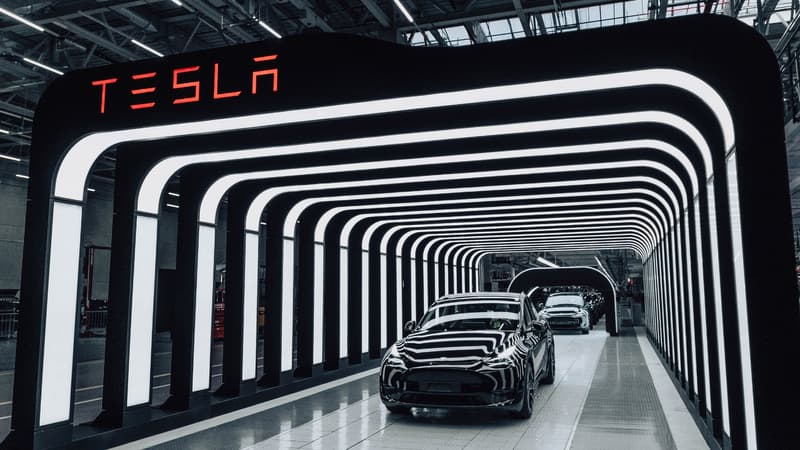Nevertheless, the manufacturer increased its deliveries by 45% during the first three quarters, despite the supply problems, and generated close to 9 billion dollars in profit during this period despite the sharp increase in expenses.
But this is short of the long-term goal of increasing deliveries by 50% per year.
And observers are worried about a slowdown in sales.
For the past two years, demand has outpaced supply in the electric car market, but this trend should “reverse” by 2023, Morgan Stanley analyst Adam Jonas says in a note published late Wednesday.
“Between a deteriorating macroeconomic environment, prices that are unaffordable for many, and increasing competition, there are hurdles to overcome,” he said.
Many traditional manufacturers now offer electric versions, be it Ford, General Motors, Nissan, Hyundai, Kia or Volkswagen. And in the category of luxury cars entered Mercedes-Benz, BMW, Audi, Polestar, Lucid and Rivian.
stubborn domination
Tesla still largely dominates in the United States with a 65% market share in the first nine months of the year, but it’s less than 79% in 2020 and this figure should fall to less than 20% by 2025, analysts predict. from S&P Global.
To boost sales in the fourth quarter, the group offered unusual promotions in the country.
The situation in China is also alarming: according to press reports, production is currently suspended at the Shanghai factory for a longer period than initially planned.
Several analysts point out, however, that Tesla maintains a clear advantage, in terms of technology, cost management and scale, in a fast-growing market.
The Baird firm thus estimates in a note released on Wednesday that the group is the “best positioned in the automobile market” and continues to recommend buying the share.
The shadow of Twitter, bought for 44,000 million dollars by Elon Musk at the end of October, looms however.
Tesla needs a “leader who can steer it through the storm” and not a boss “who is focused on Twitter,” Wedbush’s Dan Ives said in a note published Tuesday.
“Stock Market Madness”
For one thing, the billionaire sold several billion dollars worth of Tesla stock to fund the acquisition and then operating costs of his new toy, selling another $3.6 billion in early December when he said in the spring that he had no intention of selling any more. . .
It also brought chaos to the social network, firing half of its employees, authorizing the return of suspended netizens like Donald Trump, or banishing journalists for unclear reasons.
“Musk has lost all credibility with the investment community,” says Dan Ives, referring to “broken promises” over the share sale, “the Twitter fiasco” and “political controversies” on the platform.
It has become “untenable” to value Tesla without taking into account Elon Musk’s erratic handling of Twitter, Oppenheimer’s Colin Rusch said in a recent note, noting that some buyers are opting for a competing brand because of the fanciful positions it offers. shows the businessman on the platform.
-65% since the beginning of the year
In defense of the businessman, Tesla’s stock has also suffered from the general decline in the stock market this year.
In a Twitter conversation in mid-December, Elon Musk acknowledged that rising interest rates and the economic situation are likely to reduce demand for Tesla.
But “I’m still predicting that in the long run, Tesla will be the highest-valued company in the world,” he said.
On Wednesday, in a message to Tesla employees seen by CNBC, he asked them not to “get too worried about the craziness of the stock market.”
The group’s share had increased by more than 700% in 2020 and then 50% in 2021.
It has rallied nearly 12% in the last two days, but was still showing 65% less on Thursday night compared to the start of the year.
Source: BFM TV


